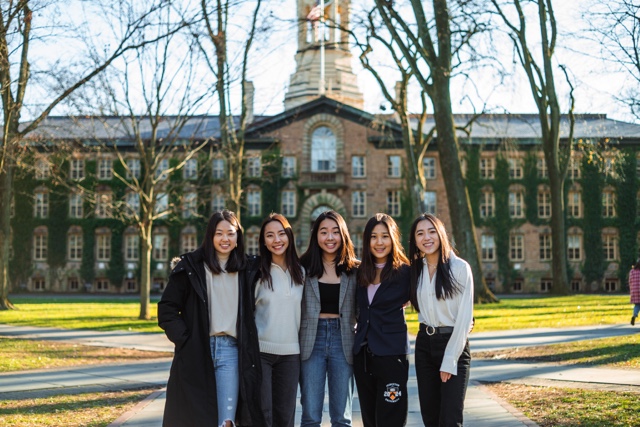During the Summer of 2020, Jennifer Lee was diagnosed with Crohn’s disease, becoming one of the 1.3 Asian Americans who identify with having a disability. Before officially being diagnosed, Lee was told by her doctor that “Asians don’t get Crohn’s” and was often the only Asian person or even the only person of color in attendance at her support groups for chronic illness. On her journey to diagnoses and treatment, Lee discovered limited educational information and resources exist for Asian Americans experiencing a disability.
In other words, Lee discovered that the exploration of intersectionality, the relationship between multiple identities, for Asian Americans with disabilities was severely lacking. Lee decided to found the youth-led group, Asian Americans with Disabilities Initiative (AADI). AADI is a space for Asian Americans with disabilities to explore their intersectional identities. It provides access to resources to combat ableism and anti-Asian racism and creates a platform for issues surrounding misinformation on Asian Americans with disabilities.
“Oftentimes colleges or social circles like to box you saying you can either care about disability or Asian American advocacy or gender issues,” Lee told NBC of her discovery of intersectionality, “What I’ve learned is it’s not only important to talk about all of these, but in fact they play into each other.”
Less than a year after their founding, the group is introducing the Asian Americans with Disabilities Resource Guide, an 80-page online guide designed to help its readers understand the experiences, research and information that exist for Asian Americans with a disability. The guide includes a plethora of resources that range from personal experiences and data, plus access to support groups and questions for self-discovery. The guide is the first of its kind ever published, is peer-reviewed and includes testimonials of many other Asian Americans sharing their experiences with having a disability. It is also designed to be an excellent resource for caretakers, family members, co-workers, bosses and allies of both communities.
“I believe that we need to spread awareness to ensure that Asian American Studies is important for research, and particularly with those with disabilities,” Justin Tsang, one of the creators of the guide, told AsAmNews, “Asian Americans, as well as Asian Americans with disabilities, are critical members of society, and we’ve been historically underrepresented. But we definitely need more resources to bring acceptance as a society.”
The guide comes at a pivotal time in American history where conversations around mental illness and racial reckoning have increased, partially due to the circumstances around the COVID-19 pandemic. AADI has stated that it will be committed to working with other minority-focused and intersectionality groups to support equal opportunities and the spread of helpful information for all.
“I think we’re going to enter a whole new era of what disability means,” Lee told NBC, “Our generation will be equipped to have these hard conversations and to destigmatize disability even more so.”
To learn more about AADI and gain access to their resource guide, visit aadinitiative.org/resources.
Sources: AsAmNews, NBC, The Asian Americans with Disabilities Initiative



